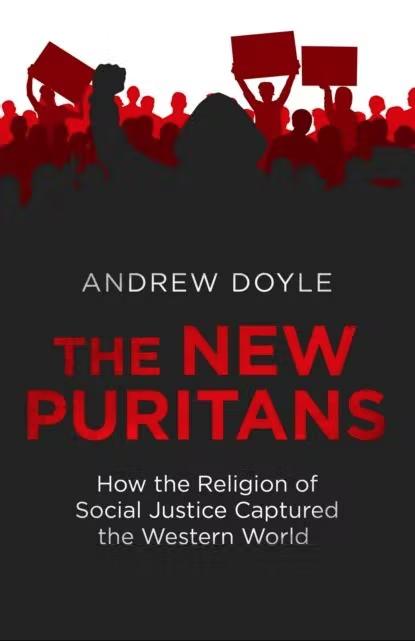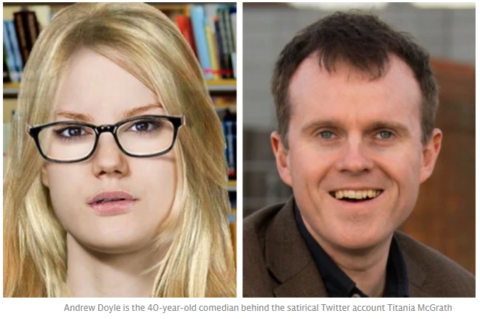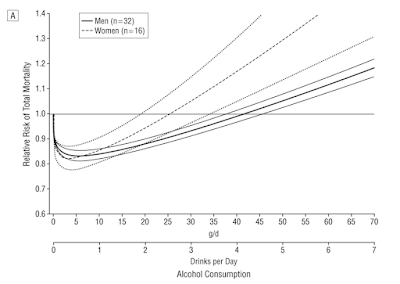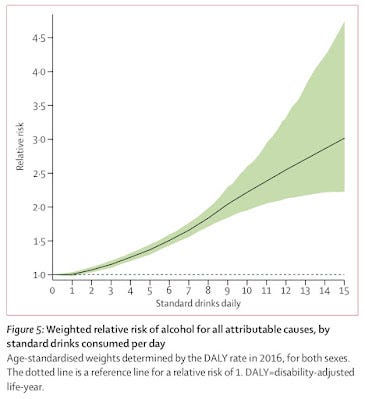Predestination is Calvinism’s fundamental doctrine. To the Calvinist, all human effort is utterly futile, since nothing we could ever possibly do could affect our salvation, or lack thereof, which was decreed by God long before the foundations of the world were laid. How the hell you get from “all human effort is futile” to “we must totally remake society” is above my pay grade, feel free to check Walzer if you want to give it a go, but it’s obvious that the Calvinists did get there — see the English Civil Wars, which themselves were a sideshow to the whole charming episode we pros call The Period of the Wars of Religion, 1517-1648.
The Puritans, as English Calvinists were called, wrote difficult prose, but in translation it sounds shockingly modern. The Puritans were the SJWs of their day, obsessed with their own pwecious widdle selves. They didn’t get around to making up xzheyr own pronouns, but they did give themselves self-righteous new names — when Ben Johnson called his caricature Puritan Zeal-of-the-Land Busy he got big laughs, but he wasn’t really joking, they really did stuff like that. To be a Puritan requires two things: An obsessive focus on the tiniest micro-movements of your own soul …
… and an equally obsessive focus on forcing other people to disclose the tiniest micro-movements of their souls. There’s nothing anyone could ever do, so trivial that a Puritan could in good conscience overlook it. Calvin’s Geneva was the closest thing to a police state 16th century technology allowed, and when their turn came, Oliver Cromwell and the boys gave importing it to England the old college try. And, of course, Plymouth Bay Colony started as a Puritan police state …
Ideology, then, removes the distinction between public and private. You can’t simply say you’re a Puritan, you really have to BE one — constantly, perfectly, since there’s nothing that Puritanism doesn’t touch. And the only way to do that, of course, is to do everything in full public view at all times. Calvin did — as Walzer remarks, John Calvin, the man, is almost completely absent from Calvin’s writings. (Unlike Luther, whose idiosyncratic, not to say lunatic, personality comes through in practically every sentence). Calvin achieved that clear windowpane prose Orwell claimed was the mark of a great writer — nothing between audience and subject at all. Calvin would, indeed, take the remark that he’s almost a complete cipher, personally, as a very high compliment.
Severian, “Ideology II”, Rotten Chestnuts, 2020-11-09.
June 1, 2023
May 29, 2023
“I’m starting to think that Just Stop Oil is a Big Oil plant”
Tom Slater on the amazing tone-deafness of the Just Stop Oil “activists”:
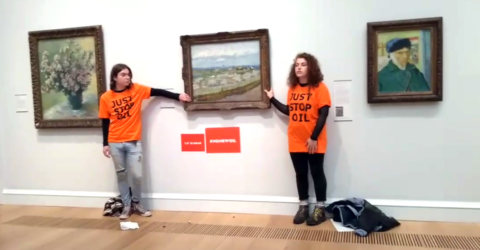
“Just Stop Oil Courtauld Gallery 30062022” by Just Stop Oil is licensed under CC BY-SA 4.0 .
I’m starting to think that Just Stop Oil is a Big Oil plant. What else could explain these campaigners’ phenomenal ability to turn the public against them and confirm their critics’ worst prejudices. Namely, that this environmental activism / amdram troupe is stuffed with upper-middle-class irritants who couldn’t give a damn about working-class people. Surely, this has got to be on purpose?
Take their recent “slow marches” through London, aimed at bringing traffic to a standstill. The whole point of these stunts seems to be to force cab drivers, delivery men and builders to sit in traffic so that these protesters can preach their miserable little gospel. And as Edred Whittingham‘s (don’t laugh) deranged antics at the Crucible recently showed us, you now can’t even escape these bourgeois millenarians during your leisure time.
That this new generation of environmentalists are almost uniformly posh is an established empirical fact. An academic survey of those involved in Extinction Rebellion – the mothership organisation from which Just Stop Oil and Insulate Britain were spawned – found, to the surprise of precisely no one, that they were overwhelmingly middle class, highly educated and from the south. A full 85 per cent of them have some form of university degree.
So what we have here is the comfortably off classes – those with sufficient free time to glue themselves to roads on a Wednesday mid-morning – forcing their weird hangups on everyone else. Time and again, when they are criticised for making people’s lives a misery, they offer only patronising lectures. “We’re so sorry that we have to disrupt the lives of ordinary people”, said Just Stop Oil’s Eben Lazarus (I know) to Vice last year, but “hopefully people will see, further down the line, that the disruption we’re causing is microscopic compared to the disruption that we’re going to face because of the climate crisis”. Translation: we know better, you cretins.
No wonder that so many now respond to these cunning stunts with instant, visceral fury. First there was the Battle of Canning Town in 2019, when east-London commuters pulled two Extinction Rebellion people down from the top of a Tube train. And as police have failed to deal with these protests – they now seem to escort rather than stop these “slow marches” – motorists have increasingly decided to take matters into their own hands. Several clips of workers clashing – sometimes physically – with Just Stop Oil activists have gone viral in the past week alone, including one of a man shoving JSOers on Blackfriars Bridge, before promptly being arrested.
The high-water mark of the Vegan cult?
In Spiked, Patrick West celebrates the passing of peak food puritanism:

“Welcome to Las Vegans and Vegetarian, Whole Foods fake meat section, Las Vegas, NV, USA” by gruntzooki is licensed under CC BY-SA 2.0 .
Over the past few years, there has been an explosion of vegan processed food appearing in supermarkets. A growing number of the population also claims to be vegan. But there are signs this trend could be going into reverse. Demand for animal-free food and drink products has collapsed over the past year. One casualty is Swedish oat-milk firm Oatly, which has recently withdrawn its dairy-free ice cream in the UK. Another is the Yorkshire sausage-making company, Heck, which has scaled-down its vegan-friendly range from 10 products to two. Smoothie-maker Innocent discontinued its dairy-free range earlier this year. Supermarket sales of meat-free products fell by £37.3million between September 2021 and September 2022, according to the consumer intelligence firm NielsenIQ.
There seems to be two main reasons. Rising inflation has been cited as one cause, as consumers have scaled back on branded and luxury eatables. Plant-based processed foods are generally more costly than the meat and dairy products they purport to replace. Another explanation is that producers of vegan food may have overestimated the size of the market for veganism, and now they are having to readjust to reality.
Whatever the reasons, we should welcome the retreat of the cult of veganism. And I use the word cult deliberately, because veganism greatly resembles not so much a lifestyle choice, but a way of life itself. It’s a faith that resonates with today’s puritanical and conformist mood.
And I should know, as someone who became a vegetarian in 1996 and has not eaten meat since. Sure, my decision aroused some mockery and derision back then, but vegetarianism had mostly stopped being regarded as weird by the mid-1990s. Ever since then, most of the opprobrium and scolding we vegetarians face comes from vegans, largely because we continue to eat eggs, cheese and milk.
For vegans, nothing must be consumed or worn that derives from animals or insects – even if there is no killing or discernible harm involved. Anything else is a feeble cop-out. Their way of thinking is absolute. In this respect, the best exemplars of the vegan movement are the animal-rights fundamentalists, PETA, whose members are well-known for their shrill, exhibitionist narcissism. Their message is simple: they are better people than you.
It’s no surprise that veganism was turbo-charged in the mid-2010s, when wokery captured the minds of so many – when absolutist, extreme thinking, and the competition to be purer than the next man or woman, took over. The trans movement echoes this rush to extremes. It demands the transformation of your entire body. Indeed, bodily self-mutilation and mortification of the flesh have long been practised by religious fundamentalists.
November 30, 2022
QotD: The rise of liberalism
Liberalism, in its own turn, came out of the accidents of European reformations, revolts, and revolutions, in an existing polity of hundreds of more or less independent political units, such as the Dutch cities in their Golden Age, or the Kleinstaaterei of German polities even after 1648. The success of the accidents made people bold — not necessarily and logically, but contingently and factually. For example, the Dutch Revolt 1568–1648 imparted the idea of civic autonomy against the hegemon of the time, Spain, and by analogy against other hegemons international and local. For another example, the initial successes of the English Civil War of the 1640s made ordinary people think they could make the world anew. For still another example, the Radical Reformation of Anabaptists, Mennonites, Congregationalists, and later the Quakers and Methodists let people take charge of their own religious lives, and by analogy their economic lives. The tiny group of English Quakers made for Lloyd’s insurance, Barclay’s bank, Cadbury’s chocolate. It was in the religious case not the doctrines of Calvinism as such (not the Protestant ethic and the spirit of capitalism) but a flattened church governance that mattered for inspiriting people.
In sum, as one of the Levellers in the English Civil War of the 1640s, Richard Rumbold, said from the scaffold in 1685, “there was no man born marked of God above another, for none comes into the world with a saddle on his back, neither any booted and spurred to ride him.” It was a shocking thought in a hierarchical society. In 1685 the crowd gathered to see Rumbold hanged surely laughed at such a sentiment. By 1885 it was a solemn cliché.
Dierdre McCloskey, “How Growth Happens: Liberalism, Innovism, and the Great Enrichment (Preliminary version)” [PDF], 2018-11-29.
November 22, 2022
November 21, 2022
November 14, 2022
QotD: The first modern revolution
The first modern revolution was neither French nor American, but English. Long before Louis XVI went to the guillotine, or Washington crossed the Delaware, the country which later became renowned for stiff upper lips and proper tea went to war with itself, killed its king, replaced its monarchy with a republican government and unleashed a religious revolution which sought to scorch away the old world in God’s purifying fire.
One of the dark little secrets of my past is my teenage membership of the English Civil War Society. I spent weekends dressed in 17th-century costumes and oversized helmets, lined up in fields or on medieval streets, re-enacting battles from the 1640s. I still have my old breeches in the loft, and the pewter tankard I would drink beer from afterwards with a load of large, bearded men who, just for a day or two, had allowed themselves to be transported back in time.
I was a pikeman in John Bright’s Regiment of Foote, a genuine regiment in the parliamentary army. We were a Leveller regiment, which is to say that this part of the army was politically radical. For the Levellers, the end of the monarchy was to be just the beginning. They aimed to “sett all things straight, and rayse a parity and community in the kingdom”. Among their varied demands were universal suffrage, religious freedom and something approaching modern parliamentary democracy.
The Levellers were far from alone in their ambitions to remake the former Kingdom. Ranters, Seekers, Diggers, Fifth Monarchists, Quakers, Muggletonians: suddenly the country was blooming with radical sects offering idealistic visions of utopian Christian brotherhood. In his classic study of the English Revolution, The World Turned Upside Down, historian Christopher Hill quotes Lawrence Clarkson, leader of the Ranters, who offered a radical interpretation of the Christian Gospel. There was no afterlife, said Clarkson; only the present mattered, and in the present all people should be equal, as they were in the eyes of God:
“Swearing i’th light, gloriously”, and “wanton kisses”, may help to liberate us from the repressive ethic which our masters are trying to impose on us — a regime in which property is more important than life, marriage than love, faith in a wicked God than the charity which the Christ in us teaches.
Modernise Clarkson’s language and he could have been speaking in the Sixties rather than the 1640s. Needless to say, his vision of free love and free religion, like the Leveller vision of universal equality, was neither shared nor enacted by those at the apex of the social pyramid. But though Cromwell’s Protectorate, and later the restored monarchy, attempted to maintain the social order, forces had been unleashed which would change England and the wider world entirely. Some celebrated this fact, others feared it, but in their hearts everyone could sense the truth that Gerard Winstanley, leader of the Diggers, was prepared to openly declare: “The old world … is running up like parchment in the fire”.
Paul Kingsnorth, “The West needs to grow up”, UnHerd, 2022-07-29.
October 16, 2022
The concept of “childhood” changes over time
Chris Bray on the steady changes in how adult societies have viewed their children from the “better whipped than damned” views of the Puritans to the “childhood is sexy” views of today’s avante-garde opinion pushers:
Childhood is mercury.
Puritans thought that children were born in a state of profound corruption, marked by Original Sin. Infants cry and toddlers mope and disobey because they’re fallen, and haven’t had the time and the training to grow into any higher character. The devil is in them, literally. And so the first task of the Puritan parent was “will-breaking”, the act of crushing the natural depravity of the selfish and amoral infant. A child was “better whipped than damned”, in need of the firm and steady repression of his natural depravity. Proper parenting was cold and distant; parents were to instruct.
By the back half of the 19th century, children were sweet creatures, born in a state of natural innocence, until the depravity of society destroyed their gentle character. (“Man is born free, and everywhere he is in chains.”) Meanwhile, the decline of family-centered industry changed the household. The historical father, present all day on the family farm and guiding his children with patriarchal modeling and moral instruction, left for work at the factory or the office, and mom occupied “the women’s sphere“, the nurturing home.
Depraved infants, stern and firm parents; innocent children, nurturing mothers. Those two conceptions of childhood and the family can be found less than a hundred years apart at their edges. There are some other pieces to layer into that story, and see also the last thing I wrote here about the history of childhood. But the briefest version of an explanation is that the changing idea of what it meant to be a child was a reflection of growing affluence and security: Calvinist religious dissenters living hard and unstable lives viewed childhood darkly, while the apotheosis of Romantic childhood appeared in the homes of the emerging Victorian management class.
So childhood is mercury: It moves and morphs with societal changes, becoming a different thing in different cultures and economies. It tells you what the temperature is.
In the febrile cultural implosion of 2022, childhood is sexy, and legislators work hard to make sure 12 year-olds can manage their STDs without the interference of their stupid clingy parents.
Or click on this link to see a fun story about a teacher in Alabama who has a sideline as a drag queen, reading a story to young children about a dog who digs up a bone and then cleverly telling the children, “Everybody loves a big bone.” Wink wink! I mean, really, what could be sexier or more fun than talking to very young children about thick adult erections, amirite?
Update: Corrected link.
September 14, 2022
QotD: The Wars of Religion and the (eventual) Peace of Westphalia
Thomas Hobbes blamed the English Civil War on “ghostly authority”. Where the Bible is unclear, the crowd of simple believers will follow the most charismatic preacher. This means that religious wars are both inevitable, and impossible to end. Hobbes was born in 1588 — right in the middle of the Period of the Wars of Religion — and lived another 30 years after the Peace of Westphalia, so he knew what he was talking about.
There’s simply no possible compromise with an opponent who thinks you’re in league with the Devil, if not the literal Antichrist. Nothing Charles I could have done would’ve satisfied the Puritans sufficient for him to remain their king, because even if he did everything they demanded — divorced his Catholic wife, basically turned the Church of England into the Presbyterian Kirk, gave up all but his personal feudal revenues — the very act of doing these things would’ve made his “kingship” meaningless. No English king can turn over one of the fundamental duties of state to Scottish churchwardens and still remain King of England.
This was the basic problem confronting all the combatants in the various Wars of Religion, from the Peasants’ War to the Thirty Years’ War. No matter what the guy with the crown does, he’s illegitimate. It took an entirely new theory of state power, developed over more than 100 years, to finally end the Wars of Religion. In case your Early Modern history is a little rusty, that was the Peace of Westphalia (1648), and it established the modern(-ish) sovereign nation-state. The king is the king because he’s the king; matters of religious conscience are not a sufficient casus belli between states, or for rebellion within states. Cuius regio, eius religio, as the Peace of Augsburg put it — the prince’s religion is the official state religion — and if you don’t like it, move. But since the Peace of Westphalia also made heads of state responsible for the actions of their nationals abroad, the prince had a vested interest in keeping private consciences private.
I wrote “a new theory of state power”, and it’s true, the philosophy behind the Peace of Westphalia was new, but that’s not what ended the violence. What did, quite simply, was exhaustion. The Thirty Years’ War was as devastating to “Germany” as World War I, and all combatants in all nations took tremendous losses. Sweden’s king died in combat, France got huge swathes of its territory devastated (after entering the war on the Protestant side), Spain’s power was permanently broken, and the Holy Roman Empire all but ceased to exist. In short, it was one of the most devastating conflicts in human history. They didn’t stop fighting because they finally wised up; they stopped fighting because they were physically incapable of continuing.
The problem, though, is that the idea of cuius regio, eius religio was never repudiated. European powers didn’t fight each other over different strands of Christianity anymore, but they replaced it with an even more virulent religion, nationalism.
Severian, <--–>”Arguing with God”, Rotten Chestnuts, 2020-01-20.
September 9, 2022
July 17, 2022
Science by press release
Christopher Snowden on a media-genic “study” from a few years ago that supported the priors of the anti-alcohol campaigners and thus was given full uncritical media coverage, despite obvious flaws in data selection and methodology:
In 2018, the Lancet published a study from the “Global Burden of Disease Alcohol Collaborators” which claimed that there was no safe level of alcohol consumption. This was widely reported and was naturally welcomed by anti-alcohol campaigners. The BBC reported it under the headline “No alcohol safe to drink, global study confirms”. (Note the cheeky use of the word confirms, despite the finding going against fifty years of evidence.)
The study wasn’t based on any new epidemiology. Instead it took crude, aggregate data from almost every country in the world, mashed it together and attempted to come up with a global risk curve.
The study contains no new evidence and uses an unusual modelling approach based on population-wide data from various online sources. If you look at this massive appendix you can see the kind of data they were using. The figures are extremely crude.
The authors don’t dispute the benefits of moderate drinking for heart disease but they claim that the benefits are matched by risks from other diseases at low levels of consumption and are outweighed by the risks at higher levels of consumption. Some diseases which have been associated with benefits of drinking, such as dementia, are excluded from the analysis entirely. They also ignore overall mortality, which you might think was kind of important.
A typical risk curve for alcohol consumption and mortality is J-shaped. It looks like this …
But the GBD’s risk curve for “all attributable causes” looked like this…
You will notice that there appears to be no protective effect at moderate rates of consumption in the GBD’s curve. One important reason for this is that they associate alcohol consumption at any level with tuberculosis. Tuberculosis remains a serious health problem in much of the world, but not in Britain. So what relevance does a global risk curve have to us? None.
Moreover, TB is not really an alcohol-related disease and is only viewed as such in this study because (a) drinking might weaken the immune system and (b) people who go to bars and clubs are more likely to catch an infectious disease. I kid you not.
July 7, 2022
QotD: Predestination
Credo quia absurdum est has a long and shameful pedigree. See, for example, the notion of Predestination. Technically, “double predestination” is the absurd part — the idea that God must’ve decided who was going to Hell long before He even created the world. It’s all but impossible to teach this idea to students, because modern people — to their credit, and for once I’m not being sarcastic when crediting modern people with anything — realize how ball-scratchingly stupid that is. Hell, maybe it’s true, but no sane person can possibly live with it.
Modern people see that as carte blanche to do whatever we want, because hey, if we do it, God made us do it … which, if you think about it for half a second, means God Himself is responsible for “sin” (quotation marks necessary, because it can’t be evil if I have no possible choice in the matter). Calvin, Knox, et al thought of that too, of course — they were crazy, not stupid — and they even had an answer: Shut up, that’s why. Not the most theologically sophisticated reasoning, but when you’re being burned at the stake for Arminianism it’s remarkably persuasive. Meanwhile, you’d best live like the holiest Puritan that ever lived … even though it’s exquisitely pointless, because you’re almost surely damned.
Severian, “Public Piety”, Rotten Chestnuts, 2019-01-29.
January 26, 2022
Three generations of the OG Puritans
At Founding Questions, Severian considers the New England Puritans and the world they inhabited:
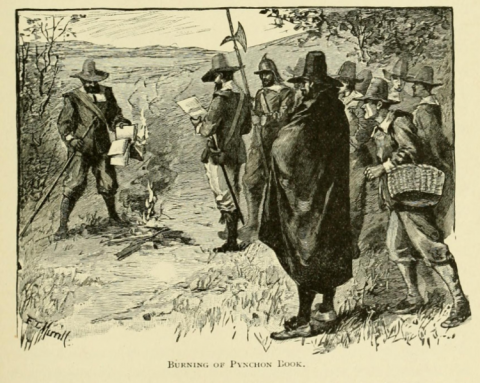
Portrayal of the burning of copies of William Pynchon’s book The Meritous Price of Our Redemption by early colonists of the Massachusetts Bay Colony, who saw his book as heresy; it was the first-ever banned book in the New World and only 4 original copies are known to survive today.
Engraving by F.T. Merrill in The History of Springfield for the Young by Charles Barrows, 1921.
Total cultural and intellectual uniformity, constantly reinforced. If those Puritans were going to go crazy, in other words, they’d do it within very carefully circumscribed boundaries. The only thing close to that level of mental control is Twitter … and I suppose I must put the disclaimer out front, so that you can factor it in if you disagree with me: I hate the Puritans. They’re just SJWs with balls and a slightly less tedious prose style. When they’re not obsessing over the tiniest motions of their pwecious widdle selves, they’re screwing you over for the hellbound heathen you are.
Credit where it’s due, though: If you need to go sodbusting in an unexplored continent, the Puritans are your guys. The original Plymouth Bay colony was thoroughly militarized, and they didn’t fuck around — when the local Indian tribes were beginning to wonder if they shouldn’t do something about these White devils they’d let loose, the Puritans attacked the fiercest tribe and wiped them out, as a show of force. Life was hard in the OG Plymouth Colony, but it was about as good as you were going to get in that era.
But the typical inheritance pattern soon took over. “Regression to the mean” is a behavioral phenomenon, too, not just an IQ one. Puritanism is an obsessive, paranoid creed; it can only flourish in times of high stress and dire insecurity. But by the 1690s, Plymouth Colony was arguably the healthiest, wealthiest, safest place per capita in Christendom (not a high bar, obviously, but still). The OG settlers were all gone by that time, of course — the original settlement, you’ll recall, was 1620 — and so were most of their almost as hardcore kids. The third generation was coming up fast …
… but finding their way blocked by the old men of the previous generation, who were as tediously, dogmatically Puritan as the OGs, but without the stones. This made them — the 2nd generation — enormous hypocrites, but even without the hypocrisy, imagine living in a world where the ultra-wealthy who control everything in society tell you that they deserve it all, because they’re God’s Elect, while you, sinner, deserve to live in a rented box and eat bugs and own nothing, because God hates you.
History’s full of weird stuff like that, and that was the situation circa 1690. One example will have to do: Since we probably all got to experience Nathaniel Hawthorne’s existential angst back in high school, consider that the ancestor who caused him so much grief, Judge John Hathorne, was born in 1641. He would’ve been 51, then, during his trial service – a ripe old age by 17th century standards.
Not only that, but the 2nd generation — the one that stubbornly refused to move on and let the kids take their place in the sun — had spent the previous twenty years grievously fucking things up. King Philip’s War nearly ruined the colony, there’d been widespread plague, and oh yeah, that whole Restoration thing back in England — the hardest of hardcore Puritan thinkers in the run-up to the Civil War had been colonials; guys like Col. Rainsborough were closely associated with Massachusetts, etc. Lots of bad blood on the other side of the water, and while the third generation was willing to let bygones by bygones, the 2nd generation wasn’t.
So: Hypocritical old throwbacks and cavemen, with a decades-long track record of dumbfuckery, who just wouldn’t get out of the way. As they got older, they got more insular and inward-looking, as old people tend to do … and “more inward looking” for a Puritan is a near-BCG level of narcissism. Meanwhile, the new generation is eager to take their place in the burgeoning Atlantic world, especially after the Glorious Revolution (1688) … but can’t.
January 1, 2022
Merry Olde England
Sebastian Milbank on the often disparaged nostalgic view of “the good times of old England”:
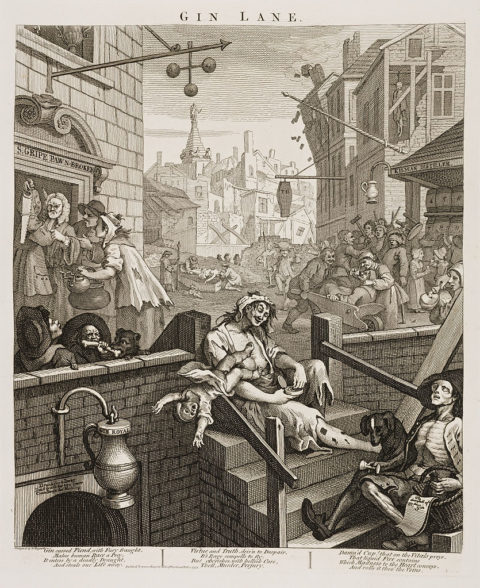
Gin Lane, from Beer Street and Gin Lane. A scene of urban desolation with gin-crazed Londoners, notably a woman who lets her child fall to its death and an emaciated ballad-seller; in the background is the tower of St George’s Bloomsbury.
The accompanying poem, printed on the bottom, reads:
Gin, cursed Fiend, with Fury fraught,
Makes human Race a Prey.
It enters by a deadly Draught
And steals our Life away.
Virtue and Truth, driv’n to Despair
Its Rage compells to fly,
But cherishes with hellish Care
Theft, Murder, Perjury.
Damned Cup! that on the Vitals preys
That liquid Fire contains,
Which Madness to the heart conveys,
And rolls it thro’ the Veins.
Wikimedia Commons.
The decadence and excess of the city is of a piece with puritanical restraint
William Wordsworth wrote:
They called Thee Merry England, in old time;
A happy people won for thee that name
With envy heard in many a distant clime;
And, spite of change, for me thou keep’st the same
Endearing title, a responsive chime
To the heart’s fond belief; though some there are
Whose sterner judgments deem that word a snare
For inattentive Fancy, like the lime
Which foolish birds are caught with. Can, I ask,
This face of rural beauty be a mask
For discontent, and poverty, and crime;
These spreading towns a cloak for lawless will?
Forbid it, Heaven! and Merry England still
Shall be thy rightful name, in prose and rhyme!Merry England is an easily mocked concept in today’s society, but in my view it carries a perennial insight: that the decadence and excess of the city is of a piece with puritanical restraint. Both apparently opposite features reflect an urban sophistication and the ruling imperative of commerce. The moneymaking frenzy of cities like London gave rise to excessive consumption and the relaxing of prior moral and social norms. Yet the 17th century Puritans were in large part cityfolk, alienated from rural tradition and well represented amongst bankers, merchants and urban middle class trades and professions.
William Hogarth’s most famous engraving is Gin Lane, which shows a street filled with people immiserated by the gin craze, a child toppling out of its mother’s arms, emaciated figures dying in the open, madmen dancing with corpses, a pawn-shop with the grandeur of a bank eagerly sucking in objects of domestic industry and converting them into gin money. Less well known is the image that accompanied it, the engraving Beer Street. In this latter engraving, plump and prosperous individuals pause from their labour to receive huge foaming mugs of ale, buxom housemaids flirt with cheerful tipplers, bright inn signs are painted, buildings are going up, and the pawn-shop is going out of business.
Merry England is an image of a society centred on human life and happiness rather than the demands of commerce. Here labour and rest both have their place: noble objects like a fine building and a bounteous meal are provided by hard work, but once completed, time is devoted to appreciating and relishing the finished product. Decoration and adornment are the outward sign of this; they are by their nature a form of abundance. The finite object of labour and production thus gives rise to an infinite realm of feast, celebration, adornment and signification. This enchanted public sphere, shaped to the human person, is limitless within its limits, and points beyond itself to the truly limitless and eternal world of the transcendent.
In the commercially determined sphere of modernity, it is instead work and consumption that are rendered limitless. The objects have become entirely ones of consumption — there is no limit to the consumption of gin, which stands in for all consumer objects. Hogarth shows us the humane objects of household industry — the good cooking pots, the tongs, the saw and the kettle — replaced with money. Liquidity is everywhere, capital has broken down the social order, removing all distinctions of sex, age and class. Now all persons and all things are joined together by a single seamless system of predation.
The alternative that many advocated to this situation was embodied in the Temperance movement: a Puritan-dominated enterprise which saw drinking as a threat to industry as well as the spiritual and moral health of the nation. This is a deep tendency in the British character: the impulse to look upon poverty and distress as a culpable disease and to preach individual self-restraint as the cure. Puritans were often well-to-do, literate townspeople, whose collective refusal to participate in dancing, drama, drinking, gambling, racing and boxing not only set them apart from the boisterous lower orders, but also from the quaffing, hunting, hawking and whoring nobility.
December 11, 2021
QotD: In praise of getting stinkin’ drunk
A lot of this has come to mind because I’ve been reading an interesting new book — Drunk: How We Sipped, Danced, and Stumbled Our Way to Civilization by Edward Slingerland. Using history, science, myth and popular culture, Slingerland defends getting drunk. Drinking has always played a role in “enhancing creativity, alleviating stress, building trust, and pulling off the miracle of getting fiercely tribal primates to cooperate with strangers.” There is archaeological evidence that brewing precedes baking.
Slingerland admits the problem of problem drinking. Yet he convincingly argues that the downside of booze has been addressed at length over the last 30 or 40 years. It’s time, he observes, for some pushback against the “puritanical discomfort with pleasure lurking in the background of scholarly discourse.” Slingerland decries “our current age of neo-prohibition and general queasiness about risk,” and exports “the simple joy of feeling good.”
Slingerland, a philosopher at the University of British Columbia in Canada, then goes even further, positing that by causing humans “to become, at least temporarily, more creative, cultural, and communal … intoxicants provided the spark that allowed us to form truly large-scale groups.”
That is to say, without Budweiser and red wine, civilization might not have been possible. For our ancestors, intoxication was “a robust and elegant response to the challenges of getting a selfish, suspicious, narrowly goal-oriented primate to loosen up and connect with strangers.” Brewing vats and drinking vessels were found at a 12,000-year-old site in Turkey. When humans began to sow crops and domesticate livestock, it allowed us to get over distrust and work in larger numbers, giving rise to towns and then cities. Slingerland: “It is no accident that, in the brutal competition of cultural groups from which civilizations emerged, it is the drinkers, smokers and trippers who emerged triumphant.”
Mark Judge, “Drunk: The Vital Pleasure of Getting Hammered”, SpliceToday, 2021-09-01.

